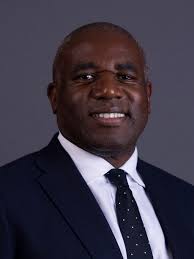David Lammy: A Key Figure in UK Politics

Introduction
David Lammy, the Labour MP for Tottenham, has emerged as a significant voice in UK politics, particularly in his role as Shadow Foreign Secretary. His influence has grown notably following the party’s recent leadership changes and as global political dynamics shift. Lammy’s contributions are essential not just within Labour but also in helping shape the UK’s foreign policy and international relations, making his profile increasingly pertinent as the country navigates post-Brexit challenges.
Background and Political Career
Born on February 19, 1972, Lammy was educated at Harvard University and later returned to the UK, where he entered politics. He was first elected to Parliament in 2000 and has held various roles within the Labour Party. His previous positions, including Minister for Higher Education and International Development, have equipped him with valuable experience that informs his current efforts in addressing global issues.
Current Events and Impact
In light of recent global tensions, including Russia’s invasion of Ukraine and the ongoing humanitarian crises in various regions, Lammy has been at the forefront advocating for human rights and diplomatic engagement. His recent appearances on international media highlight the importance of the UK taking a proactive stance in supporting democracy and addressing global injustices. In an address earlier this month following the UN General Assembly discussions, Lammy emphasised the necessity for renewed international cooperation and multilateralism in tackling global challenges.
Moreover, Lammy has been vocal about the need for the UK to reassess its foreign policy trajectory, urging the government to prioritise aid and diplomacy over military intervention. His stance reflects a broader concern among constituencies in the UK regarding the humanitarian impact of foreign policy decisions.
Conclusion
As David Lammy continues to navigate the complexities of international politics, his role as Shadow Foreign Secretary is likely to gain even more significance. With the Labour Party positioning itself as a challenger to the current government, Lammy’s views and proposed policies will be critical in shaping the party’s manifesto ahead of the next general election. For voters concerned about foreign relations, human rights, and the UK’s role on the global stage, Lammy’s actions and leadership will warrant close attention in the coming months. His effective communication and commitment to inclusive dialogue mark him as a key player in the ongoing evolution of UK politics.









